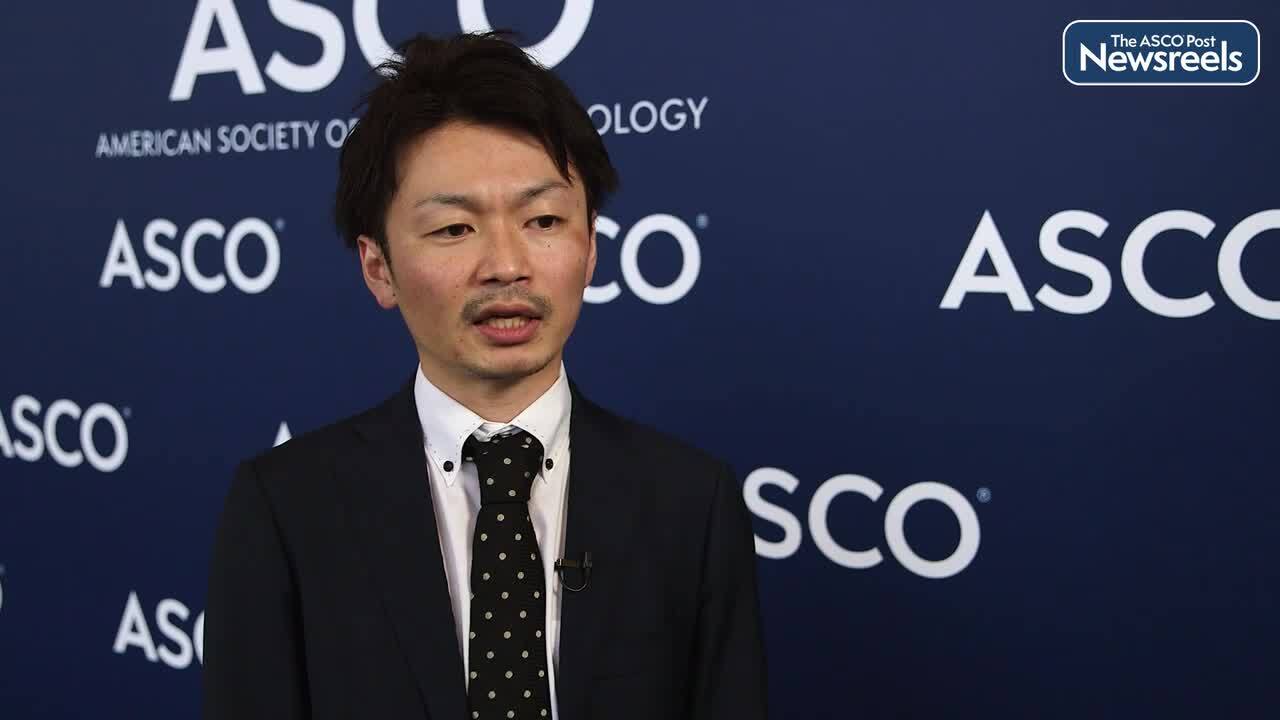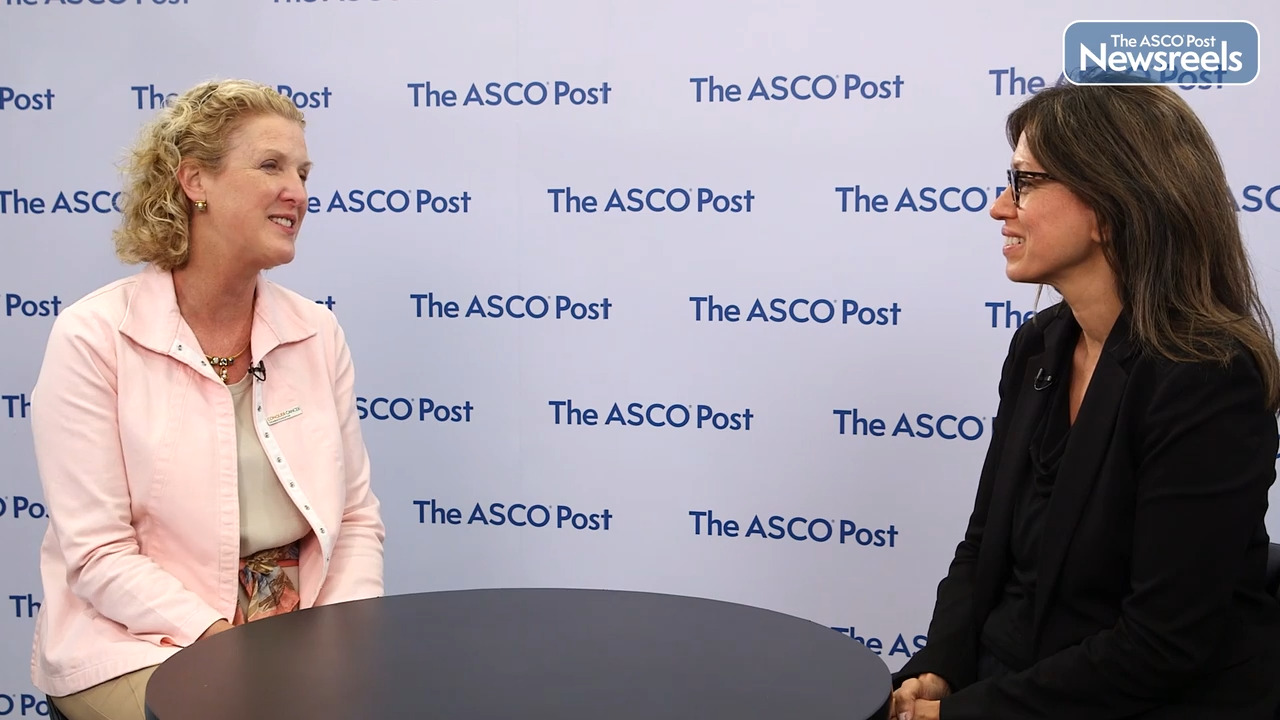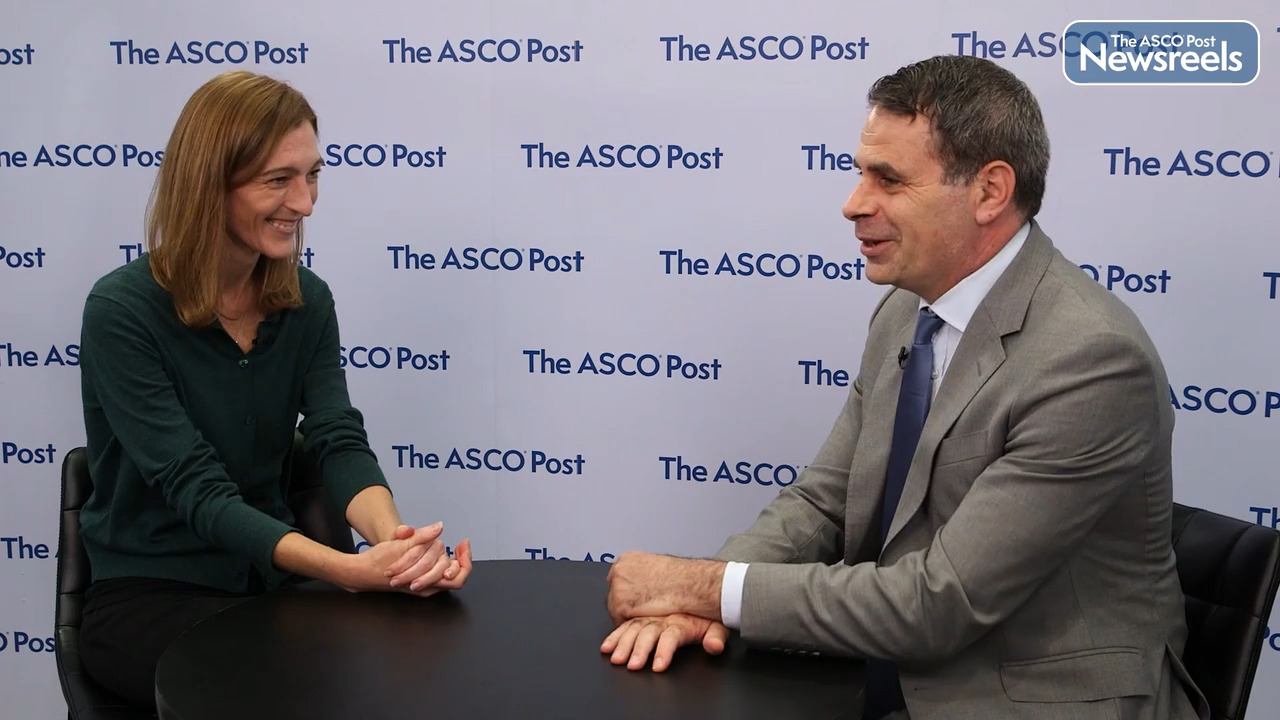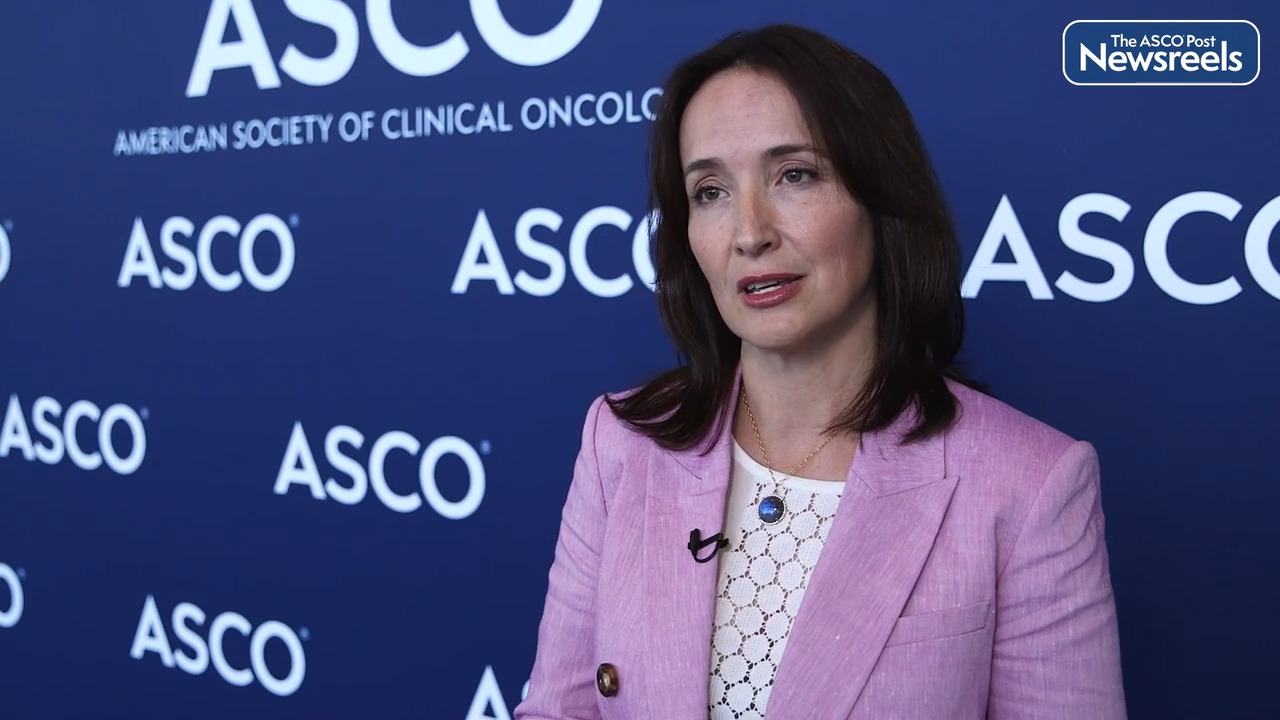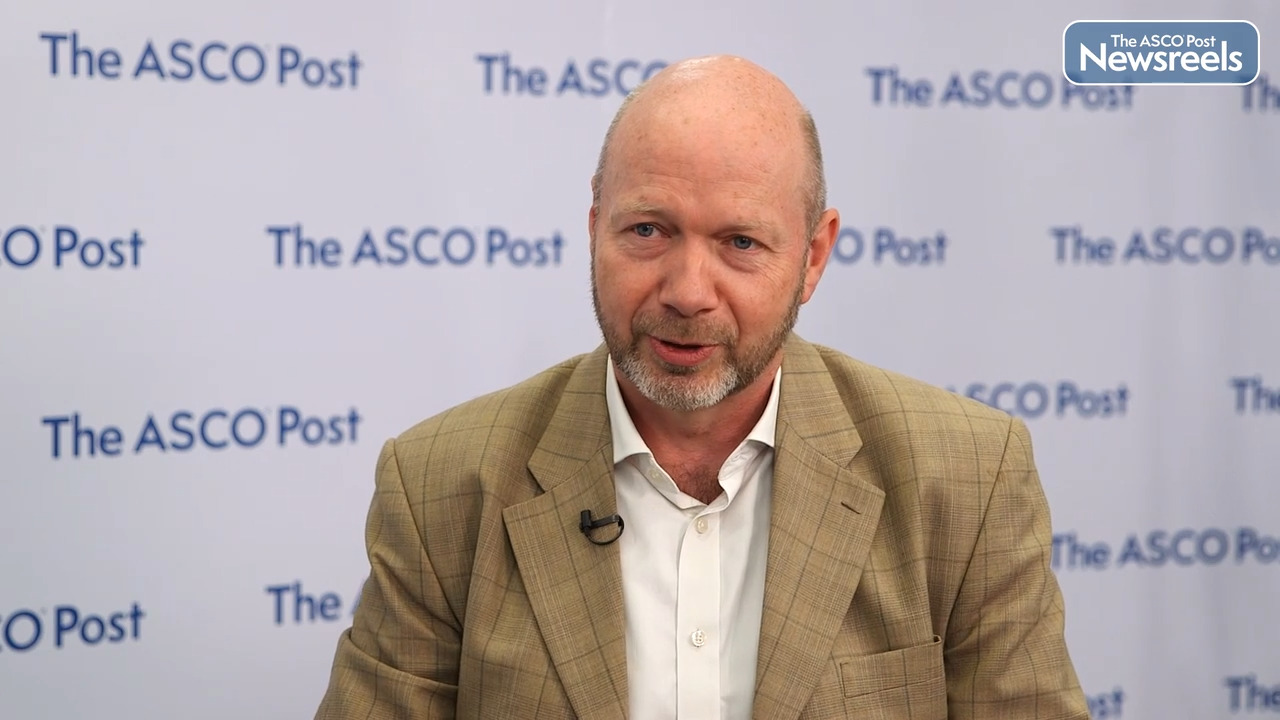Transcript
Disclaimer: This video transcript has not been proofread or edited and may contain errors.
Gilberto de Lima Lopes, Jr:
Hi, Karen. Thanks for being here. We have had a very busy ASCO 2022 and lung cancer as usual has not been different. So it's a pleasure to have you, so we can talk about the Lung-MAP trial and experience, and specifically the data that you presented here.
Karen L. Reckamp:
So thank you Gilberto. We presented our trial of Lung-MAP S1800A. It's a trial randomized phase two trial, looking at ramucirumab and pembrolizumab versus standard of care. And the standard of care was investigators choice, docetaxel ramucirumab or single agent chemotherapy. I think of interest, more than two thirds of patients received docetaxel ramucirumab. And based on that, we have an improvement in overall survival.
Gilberto de Lima Lopes, Jr:
So let's start from the beginning. What's the rationale for combining these two drugs?
Karen L. Reckamp:
As we know, we're using immunotherapy for most patients in the frontline setting for patients with advanced non-small cell lung cancer. We now have some FDA approvals in the early stages for using immunotherapy for stage, for neoadjuvant and adjuvant therapy. And unfortunately though we're seeing survival and disease-free survival benefits. Most patients will have disease progression and resistance will develop. So we need to find new therapies, novel therapies to overcome that resistance for our patients.
Gilberto de Lima Lopes, Jr:
And it's certainly the biggest area of need we have right now, which is those patients that progress after receiving immunotherapy-based combinations. And we don't have a new standard of care beyond those attacks with or without ramucirumab.
Karen L. Reckamp:
I agree.
Gilberto de Lima Lopes, Jr:
What was the specific inclusion criteria, the important elements that everybody should know?
Karen L. Reckamp:
I think the most important was that we allowed patients who had had prior immunotherapy and they had to have had at least 84 days on immunotherapy prior to progression and they had to have prior platinum-based doublet therapy. So this is kind of what our new second line looks like. It could have been sequential or concurrent, but those were the main requirements. They also had to have eligibility so that they could receive ramucirumab.
Gilberto de Lima Lopes, Jr:
So it's clearly a representative population of what we see in clinical practice. So let's not bury the lead, let's go to the main results.
Karen L. Reckamp:
So the main results is that we saw an improvement in overall survival with ramucirumab and pembrolizumab 14.5 months. And the standard of care did 11.6 months. Again, two thirds of the patients had docetaxel ramucirumab and this beats, the historical control trial from the REVEL trial that we saw. And so these are, I think, real results in the control arm and the curve separated early on. And so this looks like a trend that we see from the beginning and throughout the trial.
Gilberto de Lima Lopes, Jr:
Excellent. Any signals in toxicity that were different than what we used to seeing with these drugs?
Karen L. Reckamp:
I think we saw more grade three to five toxicities in the standard of care arm with chemotherapy. A lot of cytopenia's. We did see an increased number of vascular events in patients who received ramucirumab and pembrolizumab. These vascular events were also seen in those who received docetaxel ramucirumab, but it was a little bit higher in the experimental arm. And we saw immune related adverse events, as you might expect in those patients who received ramucirumab and pembrolizumab.
Gilberto de Lima Lopes, Jr:
And you did genomic analysis as well. Was there any subgroup, either clinical or by genomic settings that we should know about?
Karen L. Reckamp:
So I think the important question is PDL1. Based on PDL1 status, there was really no hint toward a differential in the hazard ratios, so all groups benefited. This is Lung-MAP. And so all patients get comprehensive genomic sequencing, which is a really great benefit. So when we looked at the co-mutations that patients had, there was really, again, no signals toward one being better or worse than others. Interestingly, there was some pullout for STK11, but you have to understand that numbers were very, very small in this subgroup.
Gilberto de Lima Lopes, Jr:
For our last minute. What next? And are we ready to use this when we get back to our offices in a couple days?
Karen L. Reckamp:
So this is a randomized phase two trial with really exciting results. And we hope that this can move forward. We are planning for a confirmatory phase three trial, which is really what we need. Whether people can use this in their clinic? I think that we still need a little more data to get there, but this is a very positive step forward with less toxicity and again, a potential benefit for our patients. What do you think this means for clinical practice?
Gilberto de Lima Lopes, Jr:
I think that this is without a doubt, very exciting. It's not always that we see such a clear difference in overall survival in a phase two trial. So I'm very excited to seeing the phase three trial being developed and looking for data, hopefully in a couple years.
Karen L. Reckamp:
Thank you.
Gilberto de Lima Lopes, Jr:
Thank you.
